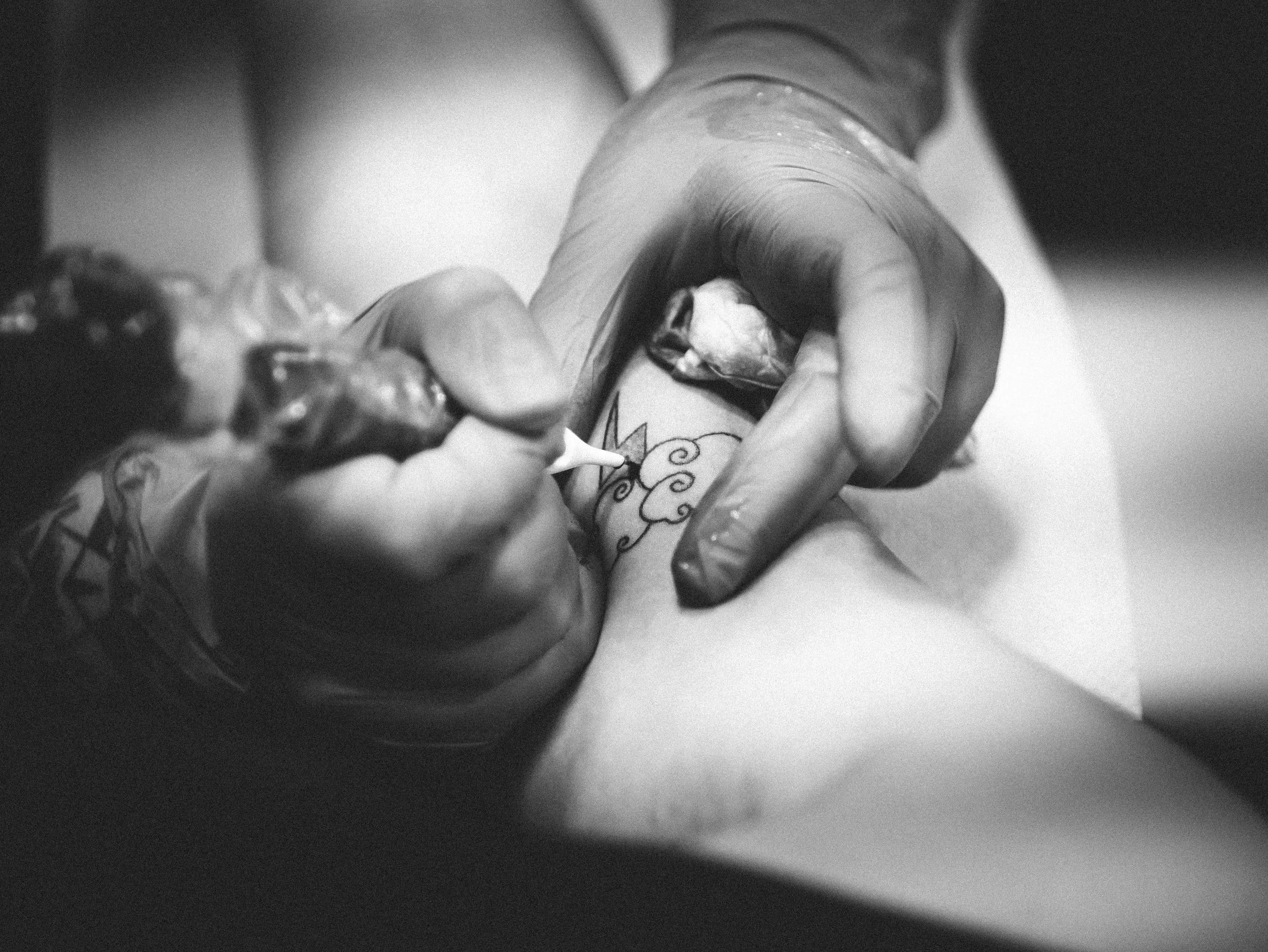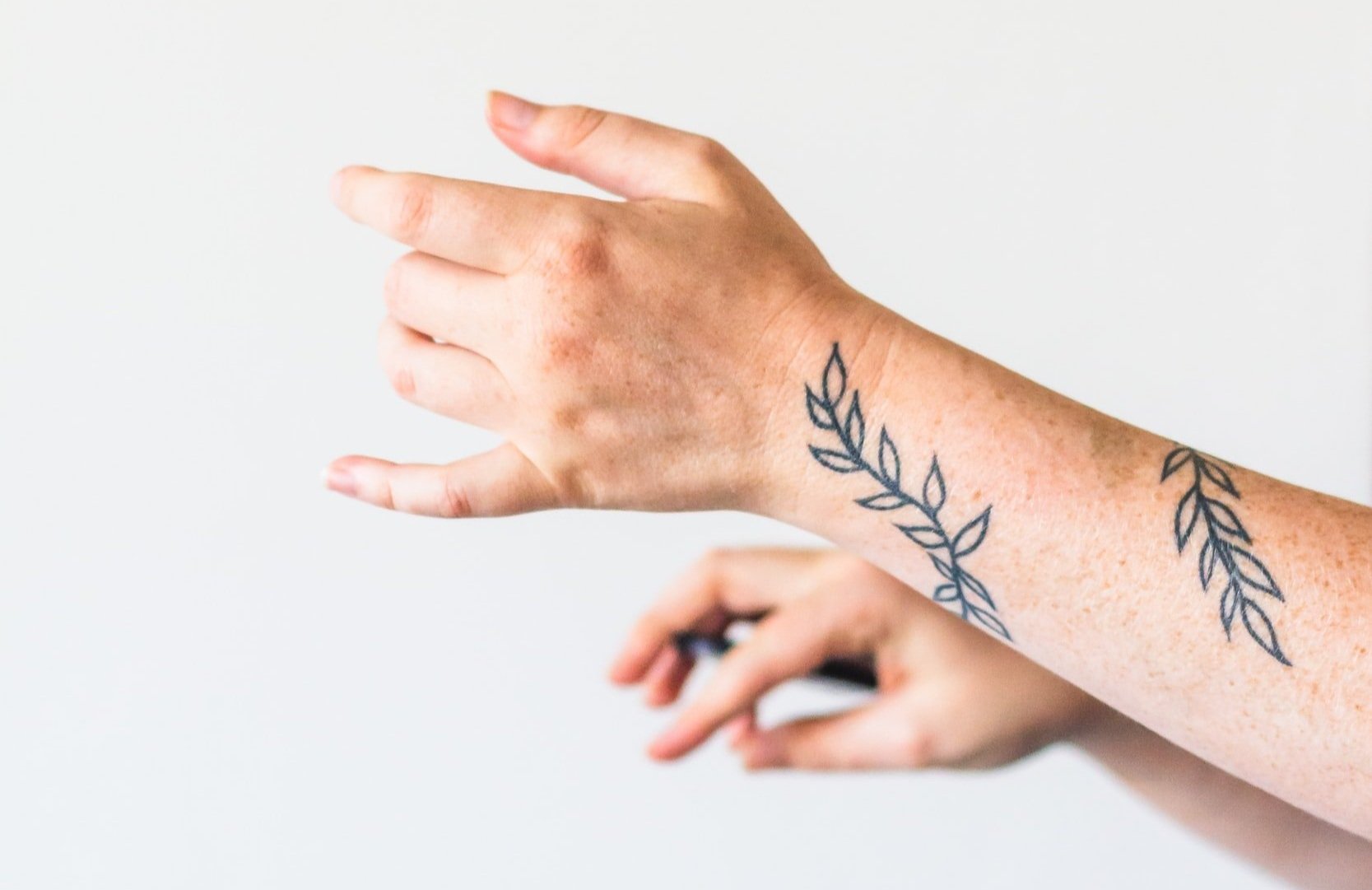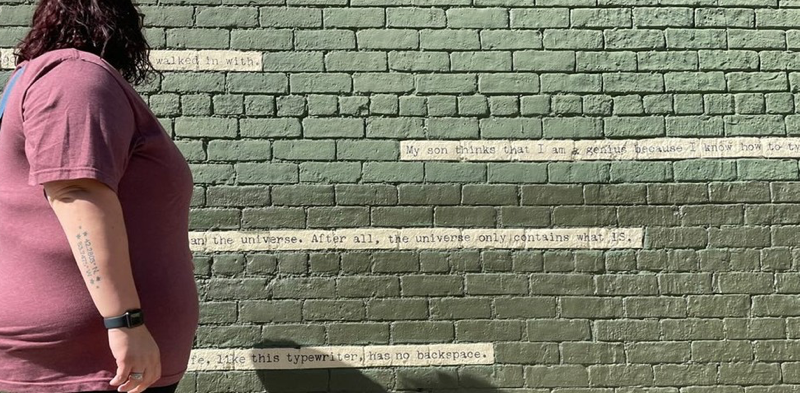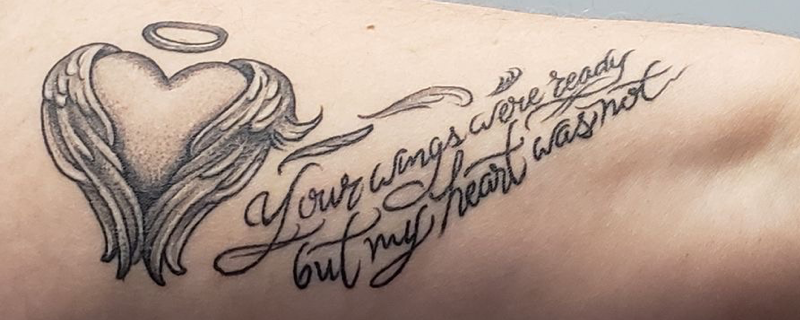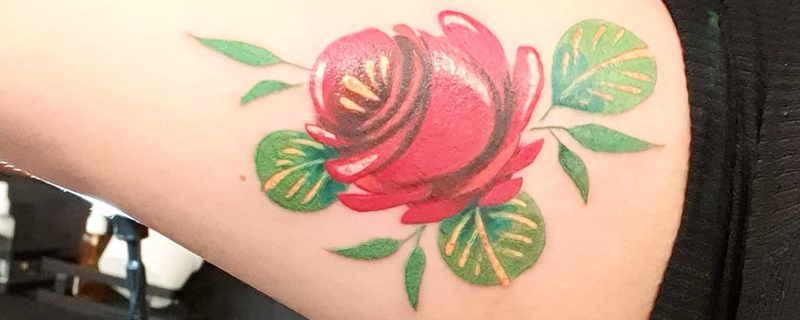Breathwork and grief
Breathwork is a long-standing practice with ancient roots, and it’s gaining recognition in holistic healing spaces - even in addressing grief.
Photo: Daniele Levis Palusi
Breathwork is a long-standing practice with ancient roots, and it’s gaining recognition in holistic healing spaces. There are many different approaches to breathwork, but generally it involves manipulating the breath to produce a physiological response in the body, often creating a cathartic emotional release.
Most definitions of “breathwork” differentiate it from general breathing or deep breathing. Instead, it’s a type of rhythmic breathing (e.g. a quick-paced long inhale / short exhale pattern) that is typically taught or practiced in a controlled setting like a yoga studio or holistic practitioner’s office, with an emphasis on processing and releasing emotions.
How does it work?
Breathwork is often taught by an experienced practitioner in a 1:1 or class setting. Participants lie down with eyes closed, usually on a blanket or yoga mat, and begin the breathing pattern as instructed. After a while they will start to feel physical sensations in the body like tingling hands and feet. They may feel cold or feel their fingers tense up. The instructor observes the participants and may at times provide individual support like covering a participant up with a blanket if they seem cold or putting a comforting hand on their shoulder. Music is often played in the background to guide the process.
It’s common for participants to have an emotional response at least once during the breathwork session, and it can feel like purging emotions that felt “stuck” in the body. The class or session length is dependent on the instructor, but after a set amount of time participants are gently guided back to a normal breathing pattern and invited to slowly re-enter the space. Participants often state that they have a feeling of calm and clarity after a session, likely due in part to the activation of the parasympathetic nervous system.
What is the holistic interpretation?
From an alternative medicine perspective, breathwork is said to release emotional blockages by moving qi (or energy) through the body. Memories and emotions that our bodies carry can be released through this process, leaving the participant feeling calmer and lighter.
How might this practice help with grief?
Breathwork can be a supportive practice in navigating difficult, heavy emotions as a result of grief or loss. When navigating grief, our bodies store stress—often for long periods of time—and the prolonged stress or feeling of “fight or flight” can be taxing on the nervous system. A breathwork practice can help with processing some of that stress through the body. Longer term, breathwork may help alleviate “stored” feelings of stress or sadness brought on by loss. Practitioners skilled in breathwork will be able to guide participants through difficult emotions in a session, but finding someone skilled who has experience and sensitivity around grief is recommended.
Please note: This practice may also be better-suited to individuals who have not endured a traumatic loss or who have had more distance from their loss (1 year+). In general, a breathwork practice is not for everyone. If you have health issues or have dealt with significant trauma, breathwork may not be a suitable practice for you. Please contact your doctor to determine if you fit the health criteria.
Resources for learning more
Information in this post was gathered from texts and websites on breathwork and in-person workshop experience.
Disclaimer: Breathwork may not be a suitable practice for all individuals, especially those with health issues or those who have dealt with significant trauma. Grief Collective is not prescribing breathwork practice and recommends that interested readers contact their doctor to learn more about their fit for the practice.
5 ways to help your grieving loved one
Here are five concrete ideas for ways you can help a loved one in the middle of grief.
Photo: Joanna Kosinska
When a loved one or friend experiences a loss, it’s natural to want to be there for them. Often, people reach out and say “let me know how I can help.” This is thoughtful in theory but can leave the burden on the bereaved person to reach out when they are already feeling overwhelmed. A better way to be supportive is to take action or provide options your friend can choose from. Here are five concrete ideas for ways you can help a loved one in the middle of grief.
1. Organize a meal train.
A common practice when someone is grieving is for people to bring food to that person’s home. Unfortunately, people often end up bringing food at the same time early on, leading to multiple meals that need to be refrigerated or frozen (or worst case if there’s no storage, thrown out). Meal trains are a great way to help organize meal delivery so that early barrage of food drop-offs is avoided. Mealtrain.com is a website that helps streamline the process online. It allows the recipient to provide information about approved drop-off days, food preferences, and interaction preferences (if, for example, they prefer not to chat at drop-off). When people sign up to participate using the link, they can also see what others are bringing, which can prevent an over-abundance of one food category. Tell your loved one that you plan to set up a meal train, ask them for any of their preferences, and do the rest of the coordinating yourself.
2. Organize thank yous.
With meal trains, flowers, cards, and contributions also comes a long list of people to thank. Helping your loved one keep track of the list of gifts from others will alleviate a significant mental burden and make things easier when they have to write thank-you cards in the future. You could also provide them with stationery to reduce the need to go out and shop for cards. You may even offer to help address the cards before they’re sent.
3. Drop off essentials.
One of the last things someone wants to deal with when they’re grieving is having to run out for paper towels, dish soap, or miscellaneous grocery items. Ask them what they need from the store and drop off your delivery at their home. Plan on a no-contact drop-off for the least amount of interruption. It doesn’t hurt to also include a surprise care item or two—like a card and their favorite comfort snack.
4. Volunteer your time.
In the immediate aftermath of a loss, there can be several logistics to iron out. Some examples include coordinating with family members, writing an obituary, and picking up flowers or refreshments for a memorial service. Volunteer a window of time to help unburden your loved one from some of these tasks. Give them a specific time window you’re available (e.g. I’m free all day Sunday—what memorial planning tasks can I take off your hands?) so they don’t have to do much planning and they know how to best use your time.
5. Offer to do childcare or pet care.
Sometimes the most important and most challenging thing a grieving person has to do is take care of themselves. When children or pets are involved, self-care falls even lower in the priority list. Offer to provide childcare or pet care for a specific window of time (e.g. I can babysit/petsit for an afternoon this week—which day is better, Thursday or Wednesday?). Encourage your loved one to use the time to take care of themselves somehow—maybe a haircut or a nap or a walk. Bonus: if you’re sitting in their home, bring them their favorite coffee drink when you arrive and consider doing some cleaning/tidying during your stay so they can come home to a cleaner house.
At the end of the day, your loved one will be grateful for your support. Sometimes just knowing that you’re available really is enough - but doing something to help them is even better.
What have you done for friends - or loved that friends did to support you?
Emptying a Loved One’s Home: What You Need to Know
The emotional toll of cleaning out the home of a recently passed family member or friend can be heavy, yet it is an essential part of moving forward.
Photo: Brian Wangenheim
GUEST POST
The following article was written by Kimberly Hayes. An author bio can be found at the end of this post.
The emotional toll of cleaning out the home of a recently passed family member or friend can be heavy, yet it is an essential part of moving forward. This guide offers you a set of strategies designed to assist you in making informed decisions and reducing stress during this challenging phase of your life. In this article, you’ll discover essential steps to help you tackle this monumental task successfully.
A Guide to Informed Choices
Your first task is to sift through the belongings and determine what to keep, what to give away, and what to discard. As you work through each room, evaluate the emotional and utilitarian significance of each item.
Strategies for Stress Alleviation
Undoubtedly, sorting through a lifetime’s worth of possessions can be stressful. If making a decision about something has you feeling stressed, taking a deep breath may help you better evaluate your choices. By taking your time and employing calming techniques, you can make this process less arduous. Reach out to friends and family for moral support, or even consider hiring a professional organizer to assist you.
Preparing the House for Sale
Before selling your home, there are key steps you need to take to get it ready for the market including making any necessary updates and repairs. Prioritizing crucial home improvements can elevate the market value of the property. Simple actions like painting, addressing minor damages, and thorough cleaning can substantially enhance its attractiveness to potential buyers. Consequently, these measures boost the likelihood of securing a rapid sale at an optimal price.
The Advantages of Yard and Garage Sales
Hosting a yard or garage sale can be an effective way to get rid of items that you don’t plan to keep. Huge time savings can be realized by using free online tools to easily create posters to spread the word. Involve family and friends to assist in the organization and running of the sale, making the task less daunting.
Opting for an Estate Sale
If the property contains numerous valuable or large-scale items, an estate sale may be the way to go. Professional estate sale companies can handle all aspects, from pricing and advertising to the sale itself, ensuring that items are sold at fair market value. This route can be especially helpful for families unfamiliar with the worth of antiques or collectibles.
Consulting the Experts
Don’t overlook the importance of seeking advice from specialists. Estate liquidators, real estate brokers, and certified appraisers can offer invaluable insights into maximizing profits and ensuring legal compliance. Their expertise can save you both time and money, and provide peace of mind during an emotionally taxing period.
Going Digital with Key Records
It’s prudent to digitize essential documents like wills, financial records, and sentimental letters or photographs. Use dedicated software or secure cloud storage solutions to keep these digital copies safe and easily accessible. Not only does this make future access easier, but it also offers an extra layer of protection against accidental loss.
The Importance of a Strong Support Network
Never overlook the value of a strong network of friends and family during this challenging time. Whether it’s emotional encouragement or hands-on help with sorting and moving items, your support system can play an essential role. The emotional reassurance from loved ones is just as important as the tangible help they offer in organizing and decision-making. You can even find relief with online grief resources (like Grief Collective). Together, these elements of support can significantly lighten the emotional and logistical load of the task at hand.
Undertaking the organization and clearing of a deceased loved one’s residence is undeniably a massive emotional and logistical task. However, with thoughtful preparation, professional guidance, and a solid support network, you can accomplish this mission with resilience and grace. Prioritize your well-being, give yourself permission to take time off when necessary, and keep in mind what truly holds value as a tribute to your loved one’s legacy.
Kimberly Hayes enjoys writing about health and wellness and created Public Health Alert to help keep the public informed about the latest developments in popular health issues and concerns.
Letters from a widowed husband, via Quora
One man’s way of dealing with the loss of his wife and sharing her life in the process.
Photo: Trinity Treft
This content was originally posted on Quora by user Jay Johnson, in response to the question “Have you ever done something useful with your grief?”
My first wife died suddenly early one morning. I chronicled her death in answer to [another Quora Question].
When she died, I owned my own IT consulting company. After her death, every morning, I drove my 10-year-old son to school. My 14-year-old daughter had a friend that was 16, had her license, and would drive my daughter to school (they went to the same school).
Once I dropped my son off, I went to my office. All day, every day, I just sat at my desk. I couldn’t do anything. When it was time, I picked up my son and went home.
This went on for weeks.
I finally decided I needed to do something — anything. But what could I do?
I had an idea.
My wife and I had a large extended family and a very broad circle of friends. So? I decided I would write to each and every one of them. I could tell them about how that person’s or couple’s relationship with my wife was so meaningful.
So I wrote. The postal letters were long. As I finished each letter and mailed it, I felt relief. Each letter was an acknowledgment of the relationship, with a full stop — time to move on.
The people who received these letters were extremely grateful, and I know the letters helped them to come to terms with their own grief.
I can’t say how many letters I wrote, but this process went on for a few (or several) weeks.
Finally, I could think of no one else to write to.
And finally, my mind and emotions were cleared enough such that I was able to effectively return to work.
Community advice on getting memorial tattoos
Getting a tattoo can be a beautiful way to pay homage, but it’s also a big commitment, and a few followers reached out wanting to know if there were any tips or bits of advice to share with someone considering getting inked. Here’s what the community had to say.
Photo: Sincerely Media
We recently shared a post with Grief Collective follower stories about tattoos they’ve gotten in memoriam of someone they’ve lost. Getting a tattoo can be a beautiful way to pay homage, but it’s also a big commitment, and a few followers reached out wanting to know if there were any tips or bits of advice to share with someone considering getting inked.
Here’s what the community had to say.
Think on it for a while.
“Grief can be so fickle,” one community member wrote. People often say not to make big life changes within the first year of a loss, and while a tattoo may not fall into that category (depending where you get it!) it’s still a big and permanent decision. Only you can decide what’s right for you, but it never hurts to take your time and make sure it’s a decision you’ll feel good about years down the line. It may even take a while to figure out what the right words or images are to remember that person. As other community members shared, there’s no rush.
Research your artist to find the right person.
Finding an artist whose style you like and who has availability can take time. You can research most artists online through tattoo shop websites or the artist’s social media accounts. Look through their work — does their style match your aesthetic? Do they specialize in a certain style? Familiarize yourself with different styles to get a sense of what you like and find artists who match that style. Another good reminder — great artists will usually charge accordingly, so be prepared in your budget. As one community member shared, “quality is an investment,” and when it comes to permanent art on your body, it doesn’t hurt to invest more.
Have the story down.
Often when people get tattoos, the art is symbolic rather than literal. If the tattoo is going to be on a visible place you can expect people to ask about its meaning. When it comes to something as personal as a loss, one community member recommended having a response ready to go — for times you want to share and times you don’t. This can help you control how open you want to be with your story, and it may also be a good litmus test before you get a tattoo of how you expect to talk about it.
Don’t slack on the aftercare.
Getting a tattoo can be an exhilarating endeavor, but it’s not finished the second you leave the chair. There are important aftercare steps for tattoos to ensure that they heal properly, and if you don’t follow them it can be bad for the longevity of the tattoo and…well, your health. Your tattoo artist will give you do’s and don’t’s (e.g. do use clean sheets; don’t hot tub or shave), and it’s important to follow them. Some even say it’s the most important step of getting a tattoo.
Do it.*
Resoundingly, for all the tips and advice in the community shared about getting tattooed, the most common one was: go for it. Of the community members who reached out, many had positive stories to share of getting tattooed to remember their lost loved one. The post sharing 6 memorial tattoos also shows it can be a beautiful tribute - if you’re someone looking to decide.
*Grief Collective is not recommending anyone get tattooed. Tattoos aren’t for everyone, and it’s okay if that isn’t how you choose to honor your loss. This post reflects sentiments from the community who was asked for advice specific to this topic.
6 community member memorial tattoos
A collection of Grief Collective follower stories about tattoos they’ve gotten to honor someone they’ve lost.
Photo: Sincerely Media
Tattoos have become increasingly popular in the past few decades, running the gamut from artistic expression to commemoration of life events big and small. Inspired by this recent Cup of Jo post (a beautiful and short read), here’s a collection of Grief Collective follower stories about tattoos they’ve gotten to honor someone they’ve lost. Thank you to those of you who submitted your stories.
Next up: community advice if you’re considering a grief- or loss-related tattoo.
This tattoo on my forearm is the coordinates of our favorite bookstore. The wall outside of it, that I’m standing in front of here, has saying painted in a typewriter font. One says “I walked in expecting to fall in love with the books, not the person I walked in with” and “I know who I’m going to marry someday.” We spend a lot of time here, became “official” here, said I love you for the first time here and I proposed to her in front of this wall (5 years ago today). It became more than a bookstore to us and now, it’s a place I go and feel comfort like we are together on a date all over again. The stars around it are from the Harry Potter books and the coordinates are done in typewriter font. People always look at me a bit funny when I say it’s to a bookstore when they ask about the coordinates, but it’s so special to me. - Katie
It says “the colors of the after.” It’s a metaphor. The life after my dad died has other colors because grief changes you. Sometimes it is full of grays and sometimes it is full of all the happy colors. My dad is on the gray ones but also in the happy ones, because he is everywhere. He was 57 when he died in 2021 and I was 23. - Noe, @noeliabp19
Mason is my only child. We had been talking about getting our first tattoos together for some time. When he was killed in a car accident at 20 years old in April 2019, I knew that I would follow through to honor him. My first, done just a few months later, simply states the reality of my feelings with his wings holding my broken heart. Mason believed in the magic a dreamcatcher holds. My second tattoo showcases that magic with an image of his eye looking over my life, knowing that he walks with me forever. - Melissa
I lost my dad in 2018. I had this tattoo in remembrance of the last time he told me he loved me. - Sarah
My dad’s passion was canal boating. He fulfilled his dream and ended up owning a custom made one that he and my mum spent months of the year on traveling the UK via the waterways. I spent many a day (and night) joining them on some of their adventures and have so many precious memories of the boat with him. I got one of the traditional hand painted roses that was on his boat tattooed on me. - Helen
I got [a tattoo] on my late boyfriend’s birthday weekend after he passed of his birth month flower. A morning glory. Single line, dainty and perfect. So happy I did it! Also the same spot he had one. September is the month. It’s under my left arm on my rib cage so it’s close to my heart too. - Bergie








